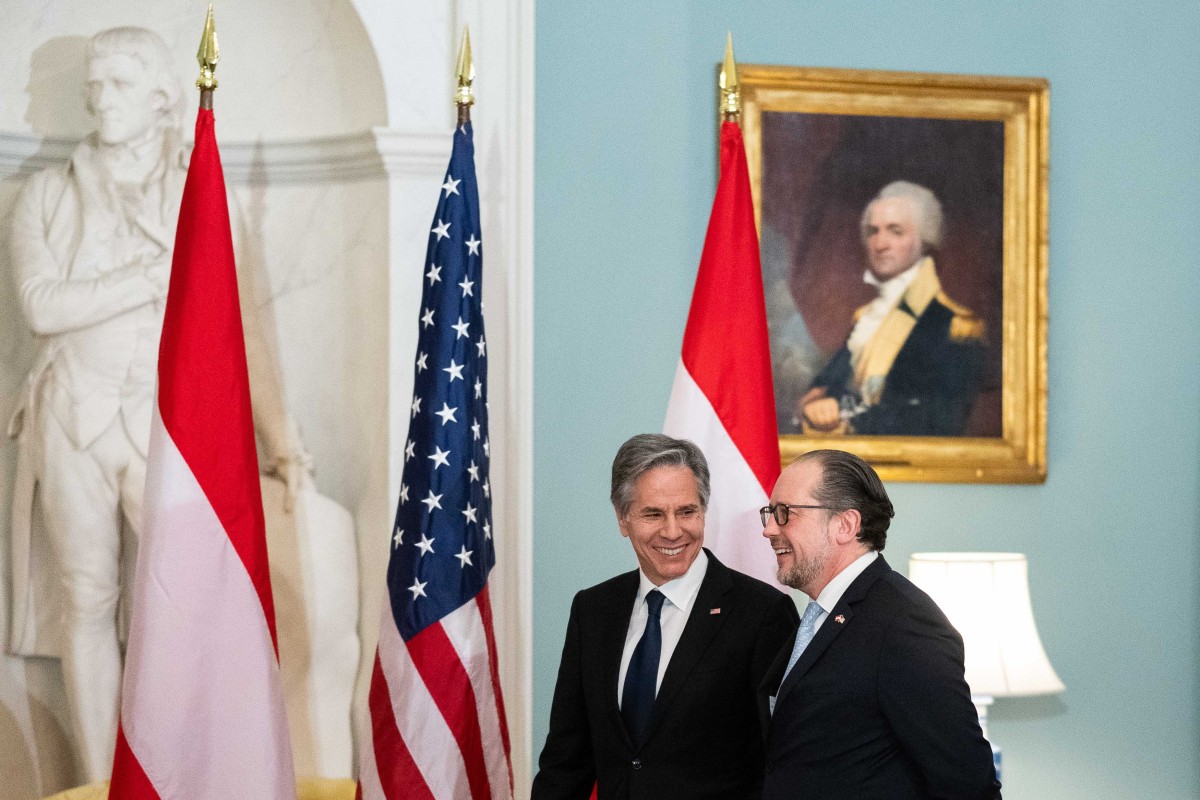Sponsored Content
U.S. Secretary of State Antony Blinken Received Austria's Foreign Minister Alexander Schallenberg
Secretary of State Antony Blinken hosted Austria's Foreign Minister Alexander Schallenberg in Washington, D.C., as a sign of the strong transatlantic partnership. In the first bilateral meeting between the two foreign ministers, the two discussed cooperation on the Russo-Ukrainian war, the Western Balkans, the expansion of Austria's Strategic Partnership with the United States, and the Turkish earthquake disaster.
 A reception was held for Austrian Foreign Minister Alexander Schallenberg (r.) by U.S. Secretary of State Antony Blinken (l.). / Picture: © BMEIA Bundesministerium für Europa, Integration und Äußeres / Gruber / Flickr Attribution 2.0 Generic (CC BY 2.0)
A reception was held for Austrian Foreign Minister Alexander Schallenberg (r.) by U.S. Secretary of State Antony Blinken (l.). / Picture: © BMEIA Bundesministerium für Europa, Integration und Äußeres / Gruber / Flickr Attribution 2.0 Generic (CC BY 2.0)
The focus of the U.S. trip and the talks with Secretary Antony Blinken was on strengthening cooperation to address the multiple crises. Austria is a strong and highly valued partner for the United States, the U.S. Secretary of State emphasized right at the beginning of the talks.
U.S. Secretary of State Antony Blinken said, "I’m so pleased to have you here in Washington at the…
or Log In
Fast News Search





